Introduction
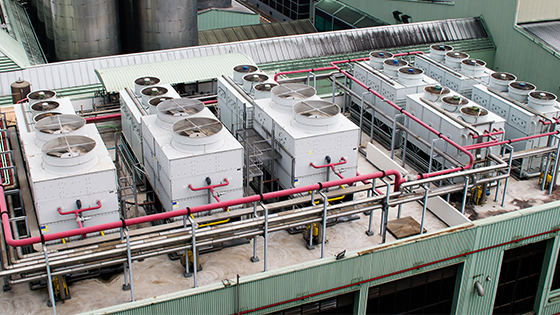
Have you ever wondered how the devices that bring warmth and convenience to our homes, like boilers and HVAC systems, operate safely and efficiently? These devices rely on a crucial component—the gas pressure sensor. These sensors work silently in the background, ensuring the system's pressure stays within a safe range and preventing accidents. Let's explore their importance through a detailed example, and then look at other common devices that also need gas pressure sensors.
Household Boilers and HVAC Systems
When you turn on your boiler expecting hot water and a cozy indoor temperature on a cold winter night, gas pressure sensors are hard at work behind the scenes. These sensors monitor the pressure within the boiler and HVAC system, ensuring they operate within optimal pressure ranges. If they detect any abnormal pressure, they immediately trigger alarms and take action to prevent faults and safety hazards. This safety assurance allows us to enjoy convenience without worrying about potential dangers.
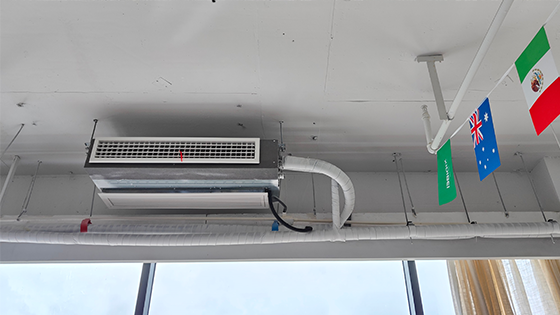
It's not just household boilers and HVAC systems that rely on gas pressure sensors. Many of the devices we use every day also need to monitor gas pressure, which is why they require gas pressure sensors too.
For example, gas pressure sensors are widely used in both automobiles and medical equipment. In cars, they monitor the pressure in the engine and fuel system to ensure the vehicle operates efficiently and complies with emission standards. Additionally, gas pressure sensors in air conditioning systems detect refrigerant pressure, ensuring the system functions correctly.
In medical equipment, devices such as ventilators and anesthesia machines depend on gas pressure sensors to monitor and control gas pressure, ensuring patient safety and precise anesthesia delivery. These sensors' accurate measurements help doctors adjust treatment plans in real-time, safeguarding patient health.
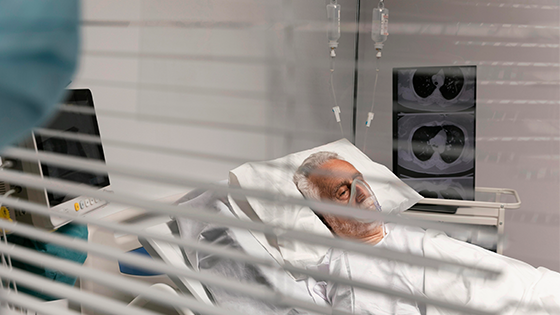
How Gas Pressure Sensors Work
Gas pressure sensors are devices that detect gas pressure and convert it into a measurable signal. Their operation typically relies on mechanical or electrical changes caused by pressure. Common types of gas pressure sensors include piezoresistive sensors, piezoelectric sensors, and capacitive sensors.
Importance of Gas Pressure Sensors
Safety Assurance: Gas pressure sensors are crucial in detecting and controlling gas pressure within devices, preventing faults and safety incidents. For example, pressure sensors in boilers prevent overpressure that could lead to explosions.
Efficiency Improvement: In industrial production, gas pressure sensors monitor gas pressure throughout the process, ensuring equipment operates optimally and avoiding resource waste and production accidents. For instance, in chemical plants, gas pressure sensors can monitor the pressure within reactors in real time, ensuring safe and efficient chemical reactions.
Environmental Protection: By monitoring and controlling gas pressure in emission systems, gas pressure sensors help industrial facilities reduce pollutant emissions, protecting the environment and human health.
Future Trends
Integration with IoT: In the future, gas pressure sensors will increasingly integrate with IoT technology, enabling remote monitoring and data analysis. Smart gas pressure sensors can transmit data wirelessly, allowing users to monitor gas pressure changes in real time via smartphones or computers.
New Materials and Technologies: As technology advances, the application of new materials and technologies will further enhance gas pressure sensors' performance. For example, nanomaterials and advanced semiconductor technologies will make gas pressure sensors more sensitive and accurate, suitable for a wider range of applications.
XIDIBEI Products
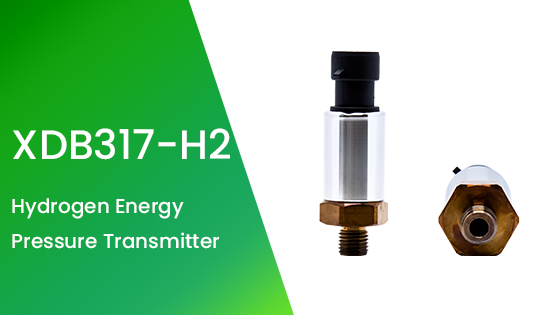
Our XDB317-H2 series hydrogen energy pressure transmitters utilize SS316L material, combining the best mechanical design for hydrogen measurement with high-performance digital compensation in a modular design. These transmitters are ideal for hydrogen fuel storage tanks, backup power supplies, and hydrogen filling stations. They feature a compact modular profile, full temperature range digital compensation, and a robust structure that ensures no leakage hazards.
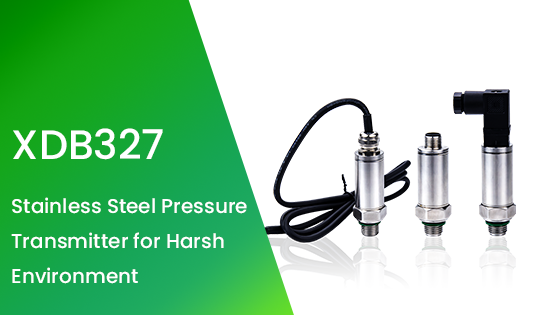
Additionally, the XDB327 series stainless steel pressure transmitters are designed for harsh environments, offering exceptional corrosion resistance, high-temperature tolerance, and excellent stability. These transmitters are suitable for heavy machinery, petrochemical processing, construction equipment, and pressure management systems. With their robust design, they provide reliable performance in demanding applications.
Conclusion
Gas pressure sensors play an indispensable role in our daily lives and industrial production. They ensure safety in homes and industries and contribute to environmental protection and healthcare. As technology continues to advance, gas pressure sensors will offer even greater convenience and safety in our lives and work.
Post time: Jul-26-2024

